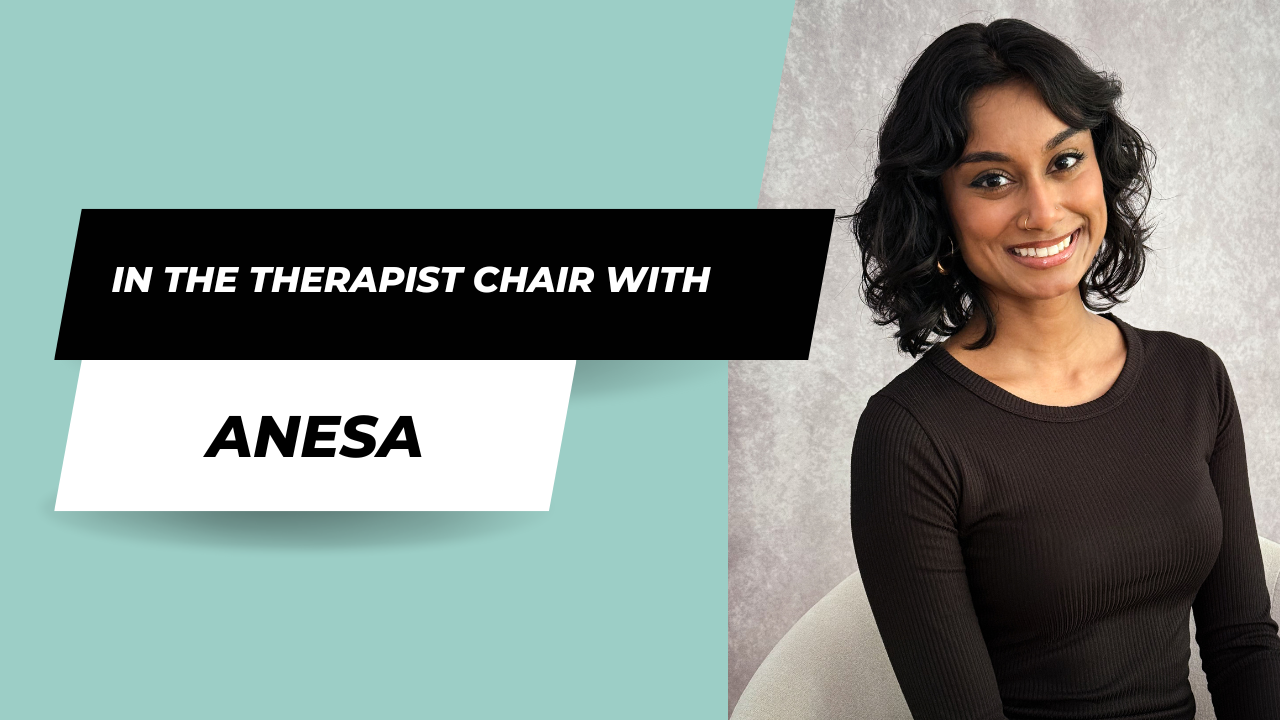Anesa Panchakulendran
Q&A with Anesa
For starters, tell me a little about yourself
I love to get out and immerse myself in new cultural experiences through art, food, and adventurous activities. I can also enjoy a quiet and cozy evening indoors with my cat, nose deep in a mystery or historical fiction novel.
My educational background consists of a MA in Counselling Psychology from Yorkville University, BSc in Psychology and Neuroscience from University of Toronto, and a Post-Graduate Certificate in Brain Disorders Management from Mohawk College. I am a member of the College of Registered Psychotherapists of Ontario and the Canadian Counselling and Psychotherapy Association.
What's your therapeutic style? What's your approach to therapy?
My overall approach therapy is very client centered. My work with clients carefully takes their needs, values, opinions, and pacing into consideration. I lean towards Cognitive and Dialectical Behavioural Theories (CBT and DBT) as well as Solution and Emotion Focused Theory (SFT and EFT) in my approach to work with clients towards their goals.
Why did you choose psychotherapy?
I was drawn to working in the mental health field after my own mental health journey as a teen. My goal was to be the kind of mental health professional that a younger version of myself was looking for. South Asian representation in the mental health field was, and is still, scarce, yet incredibly necessary. I initially entered the field as an addiction counsellor. I decided to take a step further and pursue psychotherapy to offer a wider scope of culturally informed mental health services.
What’s your best skill in psychotherapy?
My best skills in psychotherapy are building a trusting and comfortable relationship with my clients, cultural sensitivity with an openness and willingness to learn from my clients, and maintaining ongoing flexibility and adaptability to my clients’ needs.
What can clients expect when they work with you?
When working with me, clients can expect a therapist that respects their autonomy and supports their therapeutic journey at their own pace and is attuned to their unique needs. My goal is for my clients to feel heard, understood, and supported without judgements or feeling pressured. My clients can trust that each session with me will be met with warmth, safety, and compassion.
What are some therapeutic values that you bring to the table?
What I value most in the therapy room is trust, honesty, and mutual respect and understanding. I believe that these are crucial to building and maintaining a strong and healthy relationship between myself and my clients. These values guide my clients through their therapeutic process and myself in my role as part of their journey.
Why choose you?
Seeking mental health support can be difficult, and it takes strength and courage to get yourself this far. If your experience is anything like mine was, in which you also face cultural stigma around mental health and pressures from your families and communities, this experience can be especially daunting. I strive to create a comfortable, judgement-free, and supportive experience. Let’s work together towards a journey of new beginnings, empowerment, and self-discovery.


